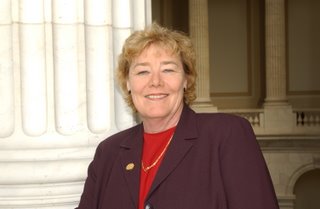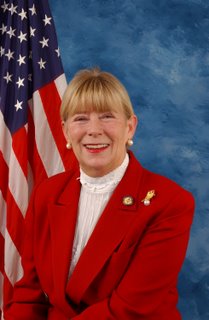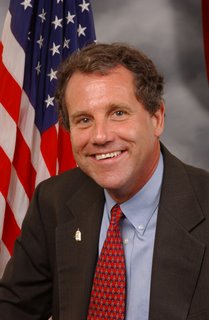
Pictured: Terri Polick, Teri Mills, Ryan S. Berger-Senior Legislative Assistant/Systems Administrator to Representative Steven C. LaTourette (OH), Alisa Schneider, Laura Stokowski, Elizabeth Bienkowski
The trip to Washington D.C. ended with a visit to Representative LaTourette's office and a meeting with Ryan Berger. We appreciate Ryan's candor, wisdom, and advice and look forward to more interactions with him.
These are the impressions of Debbie Orre, Dean of Health Science Programs at Mt. Wachusett Community College in Gardner, Massachusetts who accompanied the National Nurse Team to Washington D.C. :
A conference on the National Nurse initiative was held at Mount Wachusett Community College, where I work, at the end of March. Teri Mills and Alisa Schneider were the keynote speakers. I've never considered myself someone comfortable in the political arena but in pulling together the conference, along with contacting local, state and nationally elected officials to urge their attendance, I became a little less wary.
Once I had met Teri and Alisa, they enthusiastically invited me to participate in a two day lobbying effort in Washington, DC this May, along with other nurses and with Marcia Moody, a speaker from the same conference and a State Representative from New Hampshire. So I agreed to go without hesitation, packed my bags and went. I couldn't have been more fascinated by the House and Senate legislative aides that we met or with the general ambiance of the House and Senate buildings we entered. We ended each day in the office of Representative Lois Capps. Representative Capps, also a nurse, is from California and is the original sponsor of the National Nurse Act of 2006, HR 4903. The entire team found her and her staff to be welcoming, gracious and receptive.
The days were long and my feet were tired but I wouldn't have traded the chance to represent this bill with this team of fabulous and intelligent nurses from around the country for anything. I am also grateful to have been a small part of the process that moves this nation and creates its laws.
Thank you, Teri and Alisa, for leading me on this wonderful new adventure. You can count me in for many more!
 Pictured: Representative Zoe Lofgren (CA)
Pictured: Representative Zoe Lofgren (CA)


